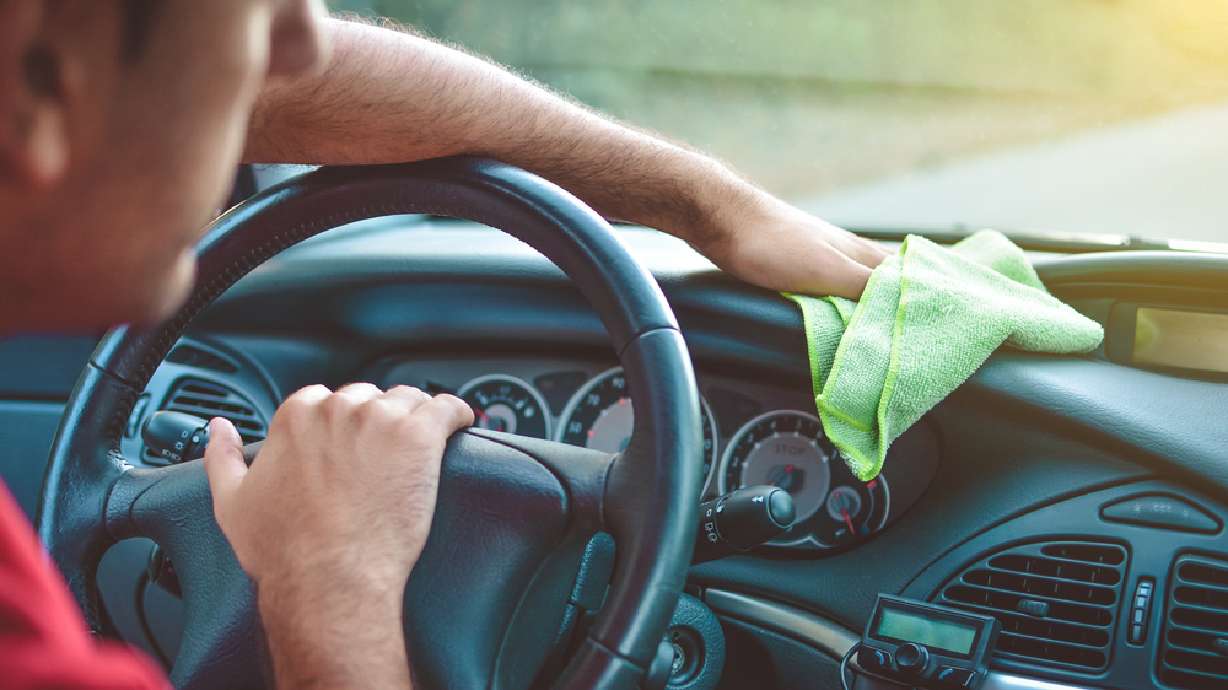Estimated read time: 3-4 minutes
This archived news story is available only for your personal, non-commercial use. Information in the story may be outdated or superseded by additional information. Reading or replaying the story in its archived form does not constitute a republication of the story.
Owning a car is a rite of passage.
Our cars give us a sense of identity, pride and countless memories shared with family and friends. A survey by Nationwide Insurance even found that around a quarter of people give their vehicles names. That's a lot of love right there.
Yet our cars are some of the dirtiest places we spend our time.
In a study, researchers found car interiors contain more bacteria than a toilet seat. According to the study by Queen Mary University, the "steering wheels, driver's seat floor, rear seats and gear shift lever contained an average of 700 bacteria per 10 square centimeters. ... Public toilet seats ... contain on average 80 bugs per 10 square centimeters."
With those figures in mind, perhaps we should be naming our toilets instead.
It's normal to leave a few things in our cars from time to time, like crumbs scattered around the back seat, an old pair of shoes in the trunk or a few wrappers and cups from a late-night fast-food run.
But it's not just bacteria that are a concern. Loose objects in the car can not only get stuck behind the brake or gas pedal while you drive, but they can also become projectiles during a crash. It might seem OK to leave hiking boots in the back, but you wouldn't want them hurtling toward your face in a car crash.
Compared with the danger of heavy objects flying through the air, having some harmless bacteria in your car may not seem like a big deal. However, those germs aren't always so harmless. A study by the University of Nottingham found traces of dangerous bacteria like E. coli and staphylococcus lurking in vehicles. Queen Mary University's study also found bacillus cereus in cars, which can cause food poisoning.
It may be shocking that your beloved vehicle can be a host to such vile germs, but given the amount of sneezing, coughing, spilling, drinking and eating we do in cars, it's no wonder they're a breeding ground for bacteria.
A similar study by Dr. Joe Latimer at Salford University found that car interiors are 2,144 percent dirtier than smartphones and 55 percent dirtier than keyboards. Most of us are oblivious to this, with the study stating that "only 8 percent (of study participants) are able to identify vehicles as potential germ-carriers."
So what to do if it's been months, or longer, since your last interior cleaning? Well, for starters, a trip to the local car wash isn't a bad idea. Here are a few simple tips on how to keep your car clean and tidy.
1. Avoid eating in your car. Occasionally it's unavoidable, and if you have children it may always be unavoidable. But limit it as much as possible and clean up after.
2. Make a habit of throwing away the trash in your car after every trip, and consider keeping trash bags on hand. It's less overwhelming to throw away a little trash at a time instead of dealing with it weeks or months later.
3. Invest in a portable car vacuum. It's easy on your wallet and a great way to keep your car free of unwanted crumbs and other messes.
4. Keep a pack of disinfecting wipes in your car. They'll be readily available to take care of the next spill, and you'll do yourself a favor by wiping down that germ-infested steering wheel every once in a while.
Though it is unlikely you'll get seriously ill by being exposed to the bacteria in your car, it's important to be aware of just how dirty car interiors are. If you love your car (or Brad, Betsy or "the Beast") take care of it. You'll, in turn, be taking care of your family's health and safety, like Robert J. DeBry and Associates.








